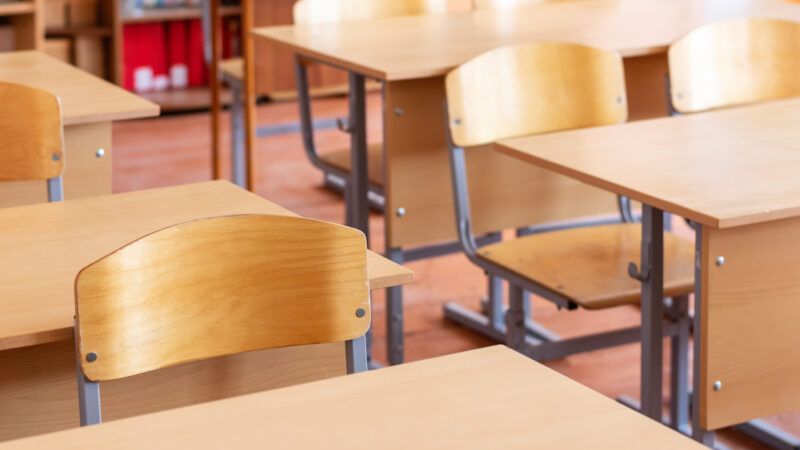D.C.'s Test Scores and Absenteeism Rates Are Getting Worse, so Why Are More Students Graduating?
When "graduation becomes close to a virtual guarantee, it also becomes pretty functionally meaningless," says one education researcher.

The high school graduation rate in Washington, D.C., is climbing. However, student school performance seems to be falling dramatically. While more and more seniors graduate high school, test scores are down and absenteeism is up.
According to a recent report from the D.C. Policy Center, graduation rates at D.C. public schools and public charter schools have been steadily rising since the 2018–19 school year. In 2022, 75 percent of all students graduated high school in four years, up seven percentage points from 2019. However, this progress is not reflected in measurements tracking students' academic achievement. On state assessments, the percentage of high school students that "met" or "exceeded" expectations in the math test declined from 18.4 percent in 2019 to just 11 percent in 2022. English scores stayed the same. Absenteeism is also up, with the percentage of students absent for more than 10 percent of the school year reaching a staggering 48 percent in the 2021–22 academic year, increasing from 29 percent three years prior.
Based on academic achievement and school attendance data, fewer D.C. public school students should be graduating high school. Yet the steady rise in graduation rates remains. Why, then, are so many more kids getting high school diplomas?
The answer isn't exactly clear. One possible reason is increasing grade inflation, meaning that students who haven't actually learned course material are getting passing grades anyway. There's an "increase in policy that we're seeing to not fail students," Max Eden, a research fellow at the American Enterprise Institute, tells Reason. "You know, 50 percent as the lowest grade kind of policy, which is being picked up in more and more especially urban schools across the country,"
Eden also suggests that D.C. could also be failing to follow its own policies around attendance requirements for graduation. It wouldn't be the first time District of Columbia Public Schools (DCPS) have made this blunder. In 2018, an audit of DCPS found that, despite the district's sharp rise in graduation rates, the increase "was entirely attributable to schools systematically not enforcing their own policies," says Eden. "And it's not as though in the wake of these revelations … D.C. really clamped down and you saw the graduation rates plummet. They kind of didn't do anything to change their policy because they could not stand to have their graduation rates decrease further."
Unfortunately, graduating kids without necessary academic skills doesn't lead to better outcomes. Just because more DCPS students are graduating high school doesn't mean more of them are leaving with important skills.
Plus, it seems fewer students graduate with the skills they need for college. As the D.C. Policy Center report notes, while the graduation rate is increasing, the rate of those who actually graduate college is declining dramatically, from 37 percent to 22 percent of those who enroll in postsecondary education.
When "graduation becomes close to a virtual guarantee, it also becomes pretty functionally meaningless," says Eden. "So you end up teaching kids a lot more poorly, both academically and, frankly, morally."


Show Comments (33)